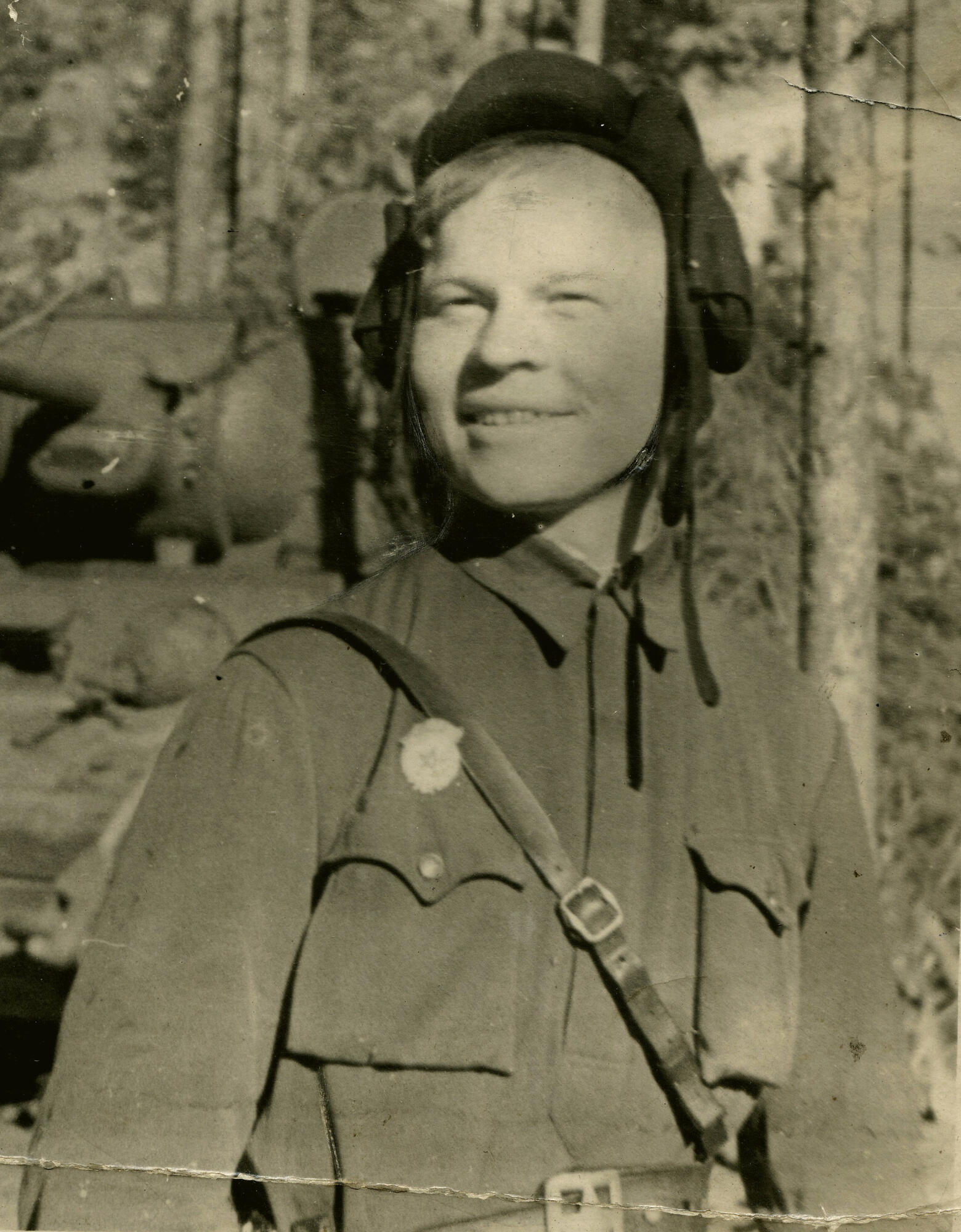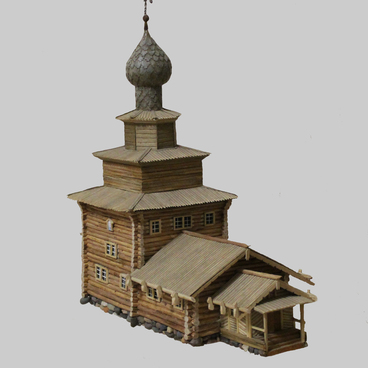Sergey Orlov was a Soviet poet and screenwriter, participant of the Great Patriotic War. Sergey Orlov was born on 22 August 1921 in the village of MegrA, Belozersky County, Cherepovets governorate (now Belozersky District, Vologda Oblast). His father Sergey OrlOv and mother Ekaterina Orlova were village teachers. Orlov wrote poetry since childhood. His children’s poem “Pumpkin” was celebrated at the All-union competition of poems by school children in 1938. It was reproduced in full in the article of KornEy ChukOvsky in the newspaper “Pravda”. Also 4 lines from this poem were used by Chukovsky in his book “From two to five”.
Lovor was published in the district newspaper “Belozersky kolkhoznik”. In 1940 he was enrolled as a history major in Petrozavodsk University. After the outbreak of the Great Patriotic War, he joined the fighter battalion of the Belozersk People’s Militia, composed of student volunteers. Two months later, he was sent to the Chelyabinsk Tank School. After that, he became commander of a platoon of heavy tanks. On February 17, 1944, Orlov was nearly burned alive in a tank, with burns on his face for life. He later disguised the burn marks by growing a beard. In 1946 the book of poetry of Orlov ‘Third Speed’ was published, which attracted attention to the poet.
Later Orlov entered the A. M. Gorky Literary Institute and from which he graduated in 1954. In 1958, the poet was part of the board of the Writers' Union of the RSFSR, headed the poetry department in the journal ‘NevA’, was a member of the editorial board of the journal ‘Aurora’. He contributed to the script for the film ‘Lark’ (1964). This film was about the feat of the tankers who were captured in Germany.
In 1970, Orlov was appointed to the secretariat of the board of the RSFSR Writers' Union, and he moved to Moscow. Later, he became a member of the Lenin Award and other State Awards committee. Sergey Orlov is one of the most famous and revered of literary writers from the Vologda area. A monument to the poet by Vasily Astapov has been erected in Belozersk. The house where he lived in the second half of the 1930s became a memorial museum. The school in which he studied bears his name, and at this school there is also a museum exhibit dedicated to the life and work of Orlov. In Belozersk and Vologda, the memory of the poet-countryman is immortalized in the names of the streets. The exhibition contains the poet’s personal belongings and a large number of documents about his life and his body of work and interests.
Lovor was published in the district newspaper “Belozersky kolkhoznik”. In 1940 he was enrolled as a history major in Petrozavodsk University. After the outbreak of the Great Patriotic War, he joined the fighter battalion of the Belozersk People’s Militia, composed of student volunteers. Two months later, he was sent to the Chelyabinsk Tank School. After that, he became commander of a platoon of heavy tanks. On February 17, 1944, Orlov was nearly burned alive in a tank, with burns on his face for life. He later disguised the burn marks by growing a beard. In 1946 the book of poetry of Orlov ‘Third Speed’ was published, which attracted attention to the poet.
Later Orlov entered the A. M. Gorky Literary Institute and from which he graduated in 1954. In 1958, the poet was part of the board of the Writers' Union of the RSFSR, headed the poetry department in the journal ‘NevA’, was a member of the editorial board of the journal ‘Aurora’. He contributed to the script for the film ‘Lark’ (1964). This film was about the feat of the tankers who were captured in Germany.
In 1970, Orlov was appointed to the secretariat of the board of the RSFSR Writers' Union, and he moved to Moscow. Later, he became a member of the Lenin Award and other State Awards committee. Sergey Orlov is one of the most famous and revered of literary writers from the Vologda area. A monument to the poet by Vasily Astapov has been erected in Belozersk. The house where he lived in the second half of the 1930s became a memorial museum. The school in which he studied bears his name, and at this school there is also a museum exhibit dedicated to the life and work of Orlov. In Belozersk and Vologda, the memory of the poet-countryman is immortalized in the names of the streets. The exhibition contains the poet’s personal belongings and a large number of documents about his life and his body of work and interests.


